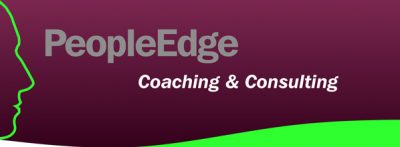We are required to have a biannual check-up with the dentist, to ensure our oral and dental hygiene is on track. Such check-ups are crucial for our overall health and wellbeing, just as seeing your GP yearly is important.
The same logic should be applied when considering the health and wellbeing of our professional career – we need to sporadically evaluate and reflect upon our professional status and direction, so that we may be happier and therefore more successful. If you determine that you’re not quite where you ought or want to be, then it is time to take the necessary steps to get on track.
There are, of course, numerous ways that you can do such an annual evaluation of your career, and you should make sure you do it in a way that best suits your needs and circumstances. Here are seven ways to help you do an appraisal on your career:
1. Reflect on the year just ended.
At your dentist appointments, the hygienist and dentist will ask you a number of open-ended questions, such as have you been flossing? It’s a chance for you to take stock and pay attention to your general self-care. Asking the same types of questions can be equally helpful for your career, allowing you to gain clarity about where you want to head and what you would like to accomplish in the year to come.
Ask yourself these questions:
- How do I feel about my job? If you are feeling bored, frustrated, uninspired, or other such feelings, that might indicate that it is time to think about looking for work or asking for a transfer.
- Am I satisfied with my work/life balance? If not, try to determine what’s causing your pain and then try to come up with possible solutions. For example, if your commute puts you in a foul mood by cutting into your free time, perhaps you can ask to work from home at least one day a week.
- If I were to compile a 2016 highlights reel, what would be on my “Top 10” accomplishments? These can reveal interesting patterns about your strengths, interests and abilities and suggest what to focus on in 2017.
2. Update your career marketing materials.
You never know when the perfect job opportunity might surface. When it does, you’ll need to be prepared to respond. Take time now to revamp and update your career marketing materials, like your resumé and LinkedIn profile, and ensure they accurately reflect your current career status and objectives.
3. Identify opportunities for professional development and training.
Your career review might reveal areas that could use some attention. Ask yourself: What do I need to do to improve my marketability and performance in the coming year? Set aside a few hours to research educational offerings (university qualifications, online training programs, continuing education workshops, etc.), conferences and other opportunities for professional development. Try to sign up for at least one new course in the year ahead. Don’t forget to see whether your employer might financially support your training. It might be considered a benefit to the organisation.
4. Audit your digital footprint.
Every time you make a comment on a blog, post a photo or do anything online you leave a trail of personal information on the web. Sometimes, that online behaviour can be problematic because it sends the wrong message about you to prospective employers.
Review, and if necessary, clean up your digital footprint.
5. Schedule your networking commitments.
Networking can, of course, be hugely important for getting ahead in your career. But, between work and family obligations, it’s often hard to find the time to attend events. The best way to counteract this dilemma is by scheduling networking activities into your calendar ahead of time.
Try to set aside at least one hour per week for networking (more if you’re in active job search mode). Spend part of that time interacting on social media groups, such as LinkedIn and Twitter. Aim for 20 minutes a day, three days a week. Then, schedule in the rest the time for meetings in person or by phone. You could also catch up with your contacts by emailing them at notable times in the calendar, such as New Year.
6. Make your health a priority.
I’d be remiss if I neglected to bring up the relation between wellness and your career. If you’re under stress, not eating well or feeling sluggish, it’s bound to impact your performance on the job. Make this be the year you choose to get healthier.
Resolve to make at least one healthy change to your daily or weekly schedule, so as to increase the duration or number of your weekly workouts, cut back your intake of sweets or make time for meditation.
7. Start researching new possibilities.
Making a job change or career switch can take longer than you expect. So, if you’re considering either, begin the process now — before you feel pressured into it.
Read industry trade journals, attend professional conferences, schedule coffee meetings with trusted contacts, and follow industry-related discussions online. Set-up Google Alerts for your field, so you’ll stay on top of news and developments that could impact your career. Schedule in at least one hour each week for such career investment – blocking out that time on your calendar will make it more likely that you’ll honour this commitment going forward.
Going to the dentist, or doctor, is a fundamental aspect of self-care, when it comes to our general health and wellbeing. Making investments of time and effort into our careers is similarly necessary in order to ensure that we are as happy as can be with our work and, therefore, as productive and successful in whatever jobs we may find ourselves in. Don’t settle for less – you get what you negotiate, not what you may deserve!

Follow us on LinkedIn, Facebook and Twitter – and signup to our regular blog at www.peopleedge.com.au/blog.
